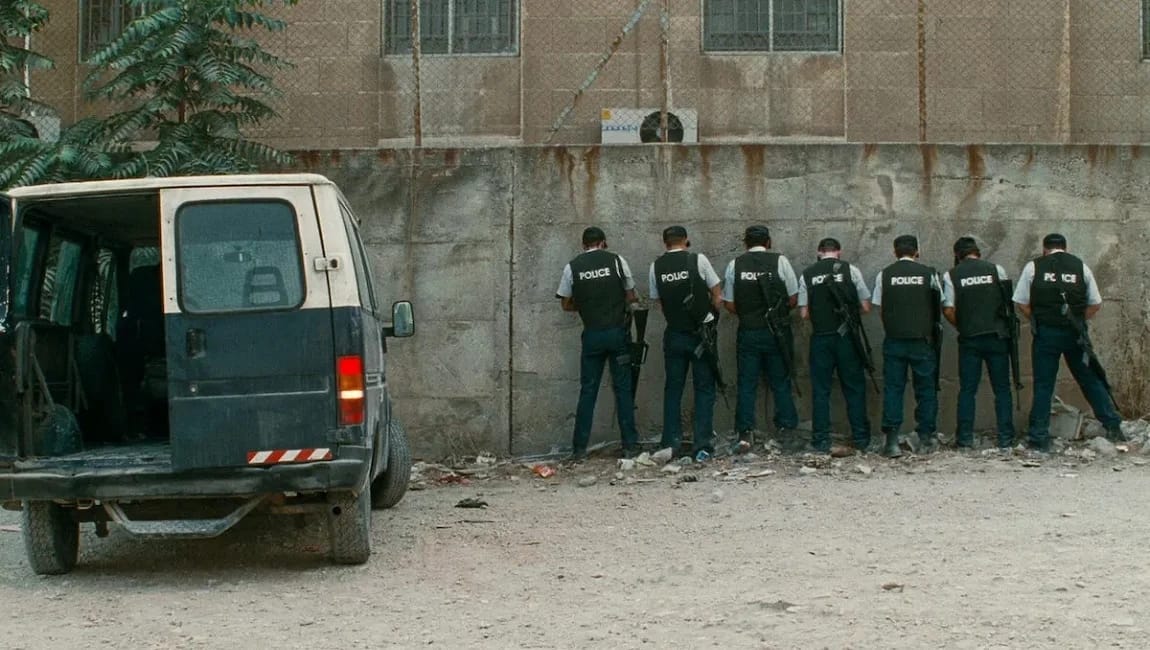Chronicle of a Disappearance — Elia Suleiman

The staff of In Review Online have come to the collective decision to abide by the international call from Strike Germany. We will be withholding coverage of the Berlin International Film Festival on the grounds that its institutional backing from the German government is marred by the latter’s censorship and marginalization of activist voices. Germany’s military and financial support of Israel, alongside the repression of those speaking up against Israel’s genocidal actions against the Palestinian people of Gaza and its assault and expropriation of those within the Occupied West Bank, should not be ignored or condoned. We wish to send our commitment of solidarity to all filmmakers and cultural workers who have joined this strike; business as usual is unacceptable. As over 100 Palestinians are killed each day in Gaza, we find the festival’s attempt to mitigate these criticisms with the gesture of The TinyHouse Project to be a condescension toward active and ongoing genocide. The festival’s poor attempt at good faith gives little actual space to the voices who push against empire, and offers only a tiny house, filled with hot air, off to the side, where no one else can see or hear you. While we will not be covering the Berlin Film Festival, that will not be the end of our participation in the strike. Instead, as a form of counter-programming, we will be reviewing selected works within the Palestinian Film Archive and publishing original writings related to these films. We declare solidarity with all participating in this strike, and solidarity with those participating in protests across the festival grounds.
The cinemas of Germany and Japan following the Second World War and the Baltic countries immediately following Soviet occupation share an overarching something with the entire history of Palestinian cinema: an inability to not be about the big elephant in the room. Once the Allied occupation came to an end, German and Japanese cinema could reckon with the “angel of history,” to borrow a phrase from Walter Benjamin; history remains with the present. Last year, German filmmaker Christian Petzold spoke with Screen Slate about his film Afire and the absence of the Rohmerian-style summer film in Germany: “We lost our freedom and summer left Germany for a long, long time.” The German elephant in the room — the Shoah, German guilt, and mass death — robbed the film industry of the innocence and capacity for the apolitical “little” movie. Only now can they at last make a summer film.
Palestinian occupation never ended. The Israeli expansion and settlement into Palestinian territory grows by the day. And this is reflected in the cinematic traditions of Palestine. Trying to find a Palestinian film that does not wrestle, mourn, protest, or lament the material reality of life under military occupation is almost impossible. Israeli film, by contrast, has more in common with American film than it does the rest of the Levant. Last year’s Ten Months, an Israeli production about a woman knowingly carrying a false pregnancy to term, reflects the gap between the cinema of the oppressed and the oppressors. Palestinian filmmakers are rarely afforded the chance to make films about apolitical domesticity and internal antagonists. When they do, they are more like Samar Qupty’s short Hush. There, an Arab woman fears an unwanted pregnancy and pursues interdependence with the help of her friend. The film is not about the occupation, but, not unlike many of the Japanese post-war films of Yasujirō Ozu, the political environment is an essential part of life. Much like the trees one must pass on their walk to the pharmacy, the infrastructure of occupation and ethnic cleansing linger over Palestinian cinema.
Continue reading at In Review Online.